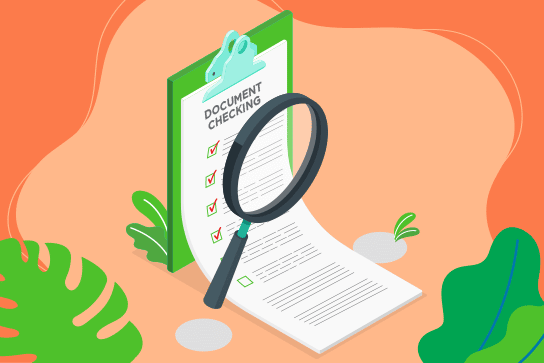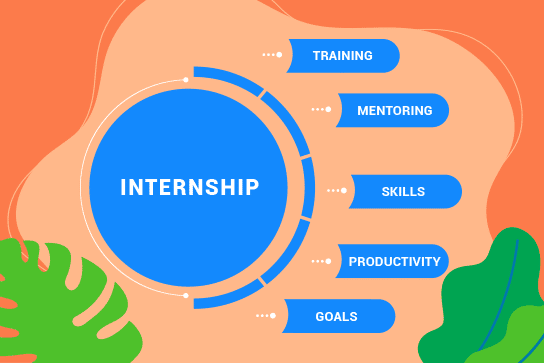LISTEN AUDIO
Last Updated on April 3, 2025 by Ozlinks Education
About Civil Engineer in Australia
When most people think of civil engineering, they picture the construction of things like buildings, bridges, and roads. Civil engineers can work underground on things like water pipes and networks for sewage disposal, but it also includes the foundations of structures, which can sometimes reach underground for many metres at a time.
In Australia, a career in civil engineering can be quite lucrative since it offers competitive income, a wide variety of options, and the possibility of contributing to the nation’s infrastructure and sustainable development.
Obtaining a degree in civil engineering opens the door to a variety of professional paths, including those in structural engineering, geotechnical engineering, transportation engineering, water and environmental engineering, and project management in the construction industry.
Is Australia good for civil engineering?
In general, international students interested in studying civil engineering in Australia have a good chance of receiving a high-quality education, gaining valuable practical experience, and being exposed to new cultures and ideas, as it is one of the most popular study destinations in the world.
According to the rankings provided by QS World University Rankings for 2023–24, Australia is home to more than ten universities that are regarded as the greatest institutions in the field of engineering. Education in Australia’s major civil engineering fields is of the highest possible standard. Need help with course enrolment at one of the top universities in Australia? Contact Ozlinks Education.
Can civil engineers become Australian permanent residents?
Australia has always been a popular location for talented civil engineers looking to further their careers and establish themselves in a multicultural culture. The occupation of civil engineering is currently on the Medium and Long-Term Strategic Skills List (MLTSSL). Civil engineering is a reasonably popular occupation that provides access to a variety of visas that may lead to permanent residency.
To relocate to Australia to work and to obtain a permanent residence, a competent civil engineer should be aware of the several visa options that may serve as a stepping stone to permanent residency. In this article, Ozlinks Education will go over the procedures and steps needed to obtain permanent residency (PR).
Are civil engineers in high demand in Australia?
According to the National Skills Commission’s (NSC) 2022 Skills Priority List report, civil engineers are classified as a shortage across Australia’s states and territories, as illustrated in the table below:
Explanation: Shortages (S): Shortages exist when employers are unable to fill job vacancies
|
ANZSCO |
Occupation |
NSW |
VIC |
QLD |
SA |
WA |
TAS |
NT |
ACT |
|
Civil Engineer |
S |
S |
S |
S |
S |
S |
S |
S |
What degree for civil engineer?
The required academic qualification at ANZSCO Skill Level 1 is a bachelor’s degree with a major in civil engineering or a higher qualification such as a Master of Professional Engineering major in civil engineering.
To understand more about the AQF level, visit AQF level page, and ANZSCO Skill Level.
What types of visas are available for civil engineer?
The occupation of civil engineering is currently on the Medium and Long-term Strategic Skills List (MLTSSL), which gives them access to a variety of visas that can lead to permanent residency in Australia. If you are a skilled civil engineer, the following visas may be available to you:
- Temporary Skilled Shortage (TSS) Subclass 482
- Employer Nomination Scheme Subclass 186
- Skilled Employer Sponsored Regional Visa 494
- Skilled Work Regional Subclass 491
- Skilled Nominated Subclass 190
- Skilled Independent Subclass 189
Check out our visa points calculator to see if you are eligible for a skilled visa. If you need help deciding what to do next, our migration experts are here to help.
Can a civil engineer apply for PR in Australia?
Employer Nomination Scheme visa 186
A civil engineer who has worked full-time for an approved sponsor for at least two years on a working Temporary Skill Shortage (TSS) visa 482 may be eligible to seek permanent residency under the Employer Nomination Scheme (ENS) visa (subclass 186).
General Skilled Migration Visas
A civil engineer may be eligible for the General Skilled Migration Visas program. It is a points-based system and the most common form of migration to Australia. To meet points-based criteria, a civil engineer must meet the minimum point requirement. Civil engineers who can potentially obtain permanent residency through one of the General Skilled Migration following visas:
Check out our visa points calculator to see if you are eligible for a General Skilled Migration Visas. If you need help deciding what to do next, our migration experts are here to help.
Does a civil engineer need to do a skills assessment?
If you want to apply for a permanent resident visa or a provisional skilled visa under the general skilled migration scheme, you’ll need to get your civil engineering skills assessed first. If you want to know more about skills assessment for migration for the occupation of civil engineer, visit the ANZSCO: 233211 pages.
What does a civil engineer do?
Civil engineer plans, designs, organises, and oversees the construction and operation of dams, bridges, pipelines, gas and water supply schemes, sewerage systems, airports, and other civil engineering projects. Registration or licencing may be required.
Their job involves:
- determining construction methods, materials, and quality standards, and drafting and interpreting specifications, drawings, plans, construction methods and procedures.
- organising and directing site labour and the delivery of construction materials, plant and equipment, and establishing detailed programs for the coordination of site activities.
- obtaining soil and rock samples at different depths across sites and testing samples to determine strength, compressibility and other factors that affect the behaviour of soil and rock when a structure is imposed and determining the safe loading for the soil.
- studying architectural and engineering drawings and specifications to estimate total costs, and preparing detailed cost plans and estimates as tools to assist in budgetary control.
- monitoring changes to designs, assessing effects on cost, and measuring, valuing and negotiating variations to designs.
- analysing structural systems for both static and dynamic loads.
- designing structures to ensure they do not collapse, bend, twist or vibrate in undesirable ways.
- assessing present and future travel flow patterns considering population increase and needs change.
- designing the physical aspects of transportation systems such as highways, railroads, urban transit, air transportation, logistical supply systems and their terminals.
How much does a civil engineer earn in Australia?
According to the Australian Bureau of Statistics, released on 07 November 2022, the average earnings report. The average civil engineer salary in Australia is $2139 per week, or $111,748 per year. According to the Indeed website report, entry-level positions start at $85,620 per year as of 13 October 2023.
Civil Engineering Internship Program
Ozlinks Education helps international students in the process of securing internships and work experience with Australian companies. You will be able to make the transition from learning in a classroom setting to working in a professional one with the help of this high-quality internship programme.
The programme will provide you with assistance in writing your curriculum vitae and cover letter, interviewing skills that will be beneficial not only for your internship but also when you are looking for a job, and, most importantly, it will provide you with a quality placement with an Australian organisation that will assist you in gaining some practical work experience in your field of study.
When you finish the program, the employer will give you a certificate of completion, and you will be able to apply this experience towards the completion of your degree. This is a wise strategy to invest in your future success. Visit the internship program if you are interested in this civil engineering internship program.
Why do I need help with skill assessment?
Each assessing authority has its own set of skill assessment criteria, procedures, and timelines. The criterion is carried out by an assessing authority and pertains to your chosen ANZSCO occupational from the Skilled Occupation List (SOL), which will be assessed by the assessing authority in compliance with relevant professional standards.
Ozlinks Education is an agency that assists individual applicants in understanding the skill assessment requirements. We are competent in finding the right assessing authority and its requirements according to your chosen ANZSCO profession. Our experience in document checking ensures that you have met the paperwork requirements for the skills assessment application criterion. This approach will allow us to present your application for the best possible outcome for your occupation, ANZSCO: 233211 Civil Engineer.
Skills Assessment AssistanceDisclaimer:
This section does not intend to provide immigration assistance pursuant to section 276 of Migration Act (Cth) 1994 as described in the Migration laws. It is based on public guidelines available at Department of Home Affairs’ Website. It is your responsibility to verify accuracy and status of provided information with your Registered Migration Agent (RMA) who is bound by the MARA code of conduct before submitting any visa applications.
Although every effort has been made to provide complete and accurate information, Ozlinks Education and Career Services makes no warranties, express or implied, or representations as to the accuracy of content under ANZSCO Occupations sections.




